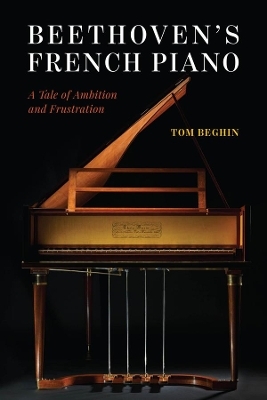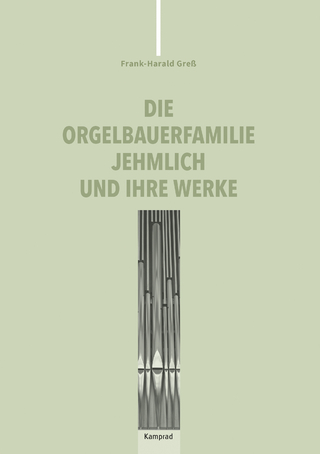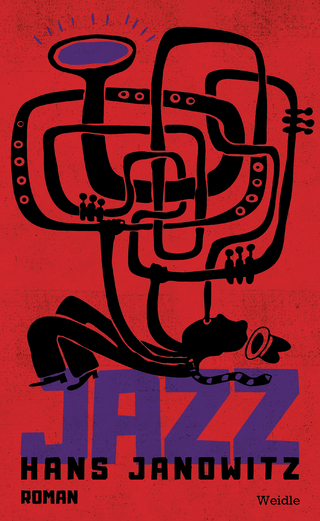
Beethoven's French Piano
A Tale of Ambition and Frustration
Seiten
2022
University of Chicago Press (Verlag)
978-0-226-81835-1 (ISBN)
University of Chicago Press (Verlag)
978-0-226-81835-1 (ISBN)
Using a replica of Beethoven’s Erard piano, scholar and performer Tom Beghin launches a striking reinterpretation of a key period of Beethoven’s work.
In 1803 Beethoven acquired a French piano from the Erard Frères workshop in Paris. The composer was “so enchanted with it,” one visitor reported, “that he regards all the pianos made here as rubbish by comparison.” While Beethoven loved its sound, the touch of the French keyboard was much heavier than that of the Viennese pianos he had been used to. Hoping to overcome this drawback, he commissioned a local technician to undertake a series of revisions, with ultimately disappointing results. Beethoven set aside the Erard piano for good in 1810.
Beethoven’s French Piano returns the reader to this period of Beethoven’s enthusiasm for all things French. What traces of the Erard’s presence can be found in piano sonatas like his “Waldstein” and “Appassionata”? To answer this question, Tom Beghin worked with a team of historians and musicians to commission the making of an accurate replica of the Erard piano. As both a scholar and a recording artist, Beghin is uniquely positioned to guide us through this key period of Beethoven’s work. Whether buried in archives, investigating the output of the French pianists who so fascinated Beethoven, or seated at the keyboard of his Erard, Beghin thinks and feels his way into the mind of the composer, bringing startling new insights into some of the best-known piano compositions of all time.
In 1803 Beethoven acquired a French piano from the Erard Frères workshop in Paris. The composer was “so enchanted with it,” one visitor reported, “that he regards all the pianos made here as rubbish by comparison.” While Beethoven loved its sound, the touch of the French keyboard was much heavier than that of the Viennese pianos he had been used to. Hoping to overcome this drawback, he commissioned a local technician to undertake a series of revisions, with ultimately disappointing results. Beethoven set aside the Erard piano for good in 1810.
Beethoven’s French Piano returns the reader to this period of Beethoven’s enthusiasm for all things French. What traces of the Erard’s presence can be found in piano sonatas like his “Waldstein” and “Appassionata”? To answer this question, Tom Beghin worked with a team of historians and musicians to commission the making of an accurate replica of the Erard piano. As both a scholar and a recording artist, Beghin is uniquely positioned to guide us through this key period of Beethoven’s work. Whether buried in archives, investigating the output of the French pianists who so fascinated Beethoven, or seated at the keyboard of his Erard, Beghin thinks and feels his way into the mind of the composer, bringing startling new insights into some of the best-known piano compositions of all time.
Tom Beghin is a senior researcher at the Orpheus Institute in Ghent, Belgium. He is the author of The Virtual Haydn: Paradox of a Twenty-First-Century Keyboardist and coeditor, with Sander Goldberg, of Haydn and the Performance of Rhetoric, both also published by the University of Chicago Press. His discography includes the complete keyboard works of Haydn and many piano works by Beethoven.
| Erscheinungsdatum | 27.06.2022 |
|---|---|
| Zusatzinfo | 11 color plates, 37 halftones, 27 line drawings, 11 tables |
| Sprache | englisch |
| Maße | 152 x 229 mm |
| Gewicht | 680 g |
| Themenwelt | Kunst / Musik / Theater ► Musik ► Instrumentenkunde |
| ISBN-10 | 0-226-81835-7 / 0226818357 |
| ISBN-13 | 978-0-226-81835-1 / 9780226818351 |
| Zustand | Neuware |
| Haben Sie eine Frage zum Produkt? |
Mehr entdecken
aus dem Bereich
aus dem Bereich
Roman
Buch | Hardcover (2024)
Wallstein Erfolgstitel - Belletristik und Sachbuch (Verlag)
CHF 27,95
die Sammlung von Bernhard Kolberg
Buch | Hardcover (2024)
E Reinhold (Verlag)
CHF 54,60


